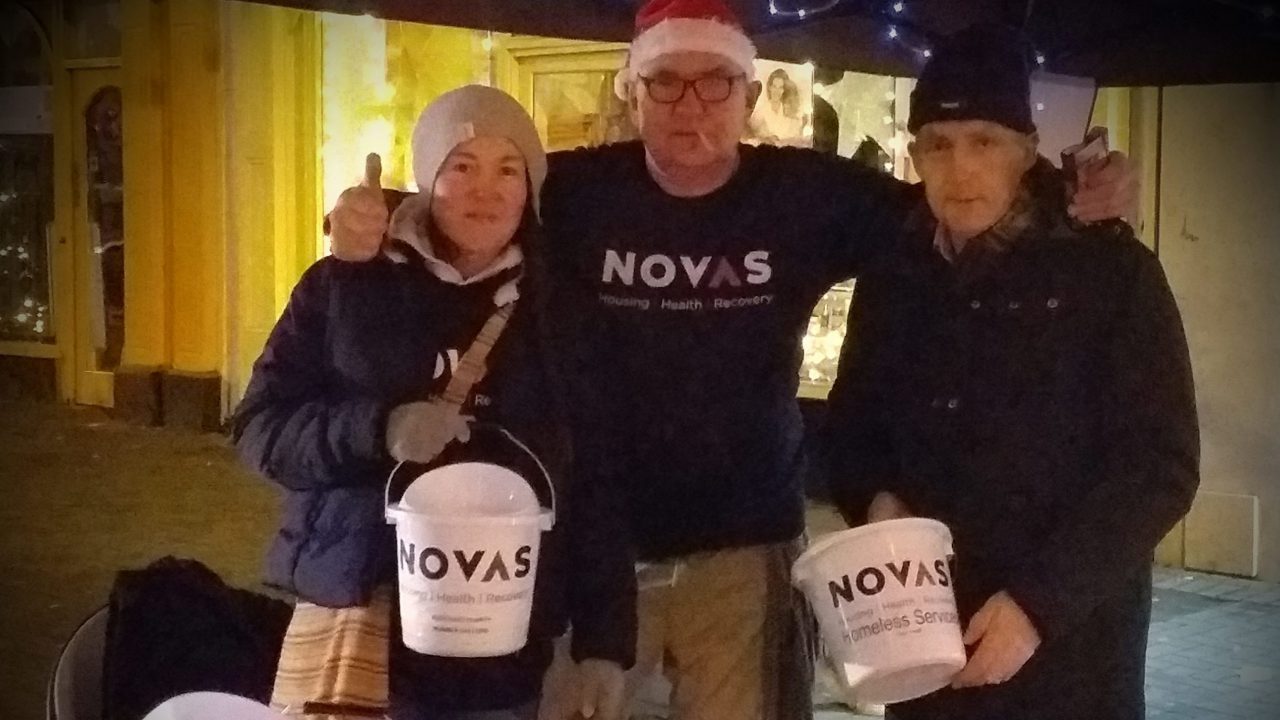People who are homeless in rural areas can experience a sense of shame and isolation, according to Deborah Ryan, Tipperary services manager with Novas, Thurles.
Novas is a voluntary organisation and approved housing body working with families and single adults who are disadvantaged and socially excluded, primarily those who are homeless or at risk of becoming homeless.
“I have been working in homeless services for the past 16 years. I spent the first eight years in Limerick city and have been managing services in Thurles for the past eight years.
“In my opinion, the difference between rural and urban homelessness is varied. Urban figures are larger so there are much more resources put in place, for instance in Tipperary we have no domestic violence refuge, and we have only nine supported homeless beds – hostel beds,” she said.
“We depend on private hotels and B&B for emergency beds for our homeless. There are no shelter / rough sleeper units for people in crisis. Another difference is the ‘shame’ and ‘isolation’.
People in rural towns tend to hide their homelessness more. You don’t see as many people out on the streets in view, they tend to hide away from public view. Many people are sleeping in their cars, in overcrowded houses on friends sofas or in ‘squats’ away from the view of the glaring public.
“In bigger towns and cities you can be more anonymous. In a small town you are more likely to be well known. Because rough sleeping and homelessness is more visible in big towns and cities, it appears people are more accepting of it,” Deborah said.
Her comments came as the bodies of two men were discovered in separate locations in Dublin city centre during the week.
Too late
“The vast majority of our homeless clients are single males, but the vast majority of the clients we support to keep their homes and provide supports in the community are females. Females are quicker to look for support before it’s too late. In my experience the male clients will only look for support when they have lost their accommodation.
Drug use is a huge factor in homelessness in rural Ireland. The drug scene is expanding and changing all of the time. We have seen a lot of people released from prison also this year with no addresses. The incidence of homeless people out of prison is definitely increasing. It is also very difficult to manage as with small towns. Everyone knows you have been in prison and the prospect of finding a job or a rental property is very slim.
Opened in 2011, Mitchel Street provides accommodation for five individuals from north Tipperary in a group home setting.
“Some of the issues facing the residents of the service include: family breakdown; care leavers needing additional support; substance and alcohol misuse; mental health issues; and social marginalisation,” Deborah said.
“Many of the clients have been excluded from mainstream society for much of their lives due to their background, challenging behaviour and poor mental health. Staff support residents to re-engage in their local communities in an empathetic and non-judgmental manner.
Practical and emotional supports offered
“Mitchel Street prepares clients for independent living. Life-skills programmes are run within the house and residents are actively supported in accessing further education. Staff endeavour to secure suitable accommodation based on individual needs. The service accommodates individuals from 18 years-of-age and also cares for a number of older clients,” she said.
An outreach programme to support families and individuals from the north Tipperary region is also provided by staff. Practical and emotional supports are offered to this client group in an effort to maintain existing tenancies and improve their quality of life in the areas of money management; health; family relationships; and access to services.
“This outreach service was developed as a preventative measure in the cycle of homelessness and also supports former residential clients now living independently in the community. In 2017 Novas opened an outreach support service and regional office in Thurles,” said Deborah.
“The service provides outreach support for those living in their own homes who were formally homeless or at risk of becoming homeless. The service also advocates for clients and provides support for those living in emergency B&B accommodation,” she said.
“Due to unprecedented demand for our residential facility in the town, Novas sought to provide outreach support to vulnerable households in the community to prevent homelessness occurring. Supports include: budgeting and money management; social engagement; life-skills; and enhancing health and well-being.
“New initiatives in 2019 saw Novas starting a long-term housing programme. We have nine properties in Thurles: four two-beds; and five three-bed family homes. This has been a great asset to us in order to move people out of homelessness and create space in out supported accommodation for new clients,” said Deborah.
Christmas appeal
Meanwhile, Novas is looking for support for its Christmas appeal, with donations; food; fuel; and toys sought.
